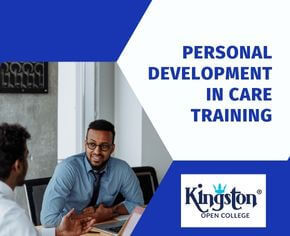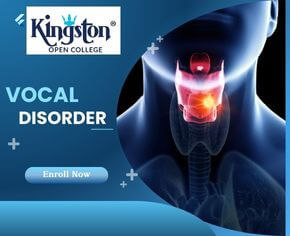About Us

At Kingston, we offer the best in e-learning courses, featuring regulated and endorsed qualifications for your career growth.
Contact Us
Advanced Diploma in Counselling -Level 7
( 8 Reviews )
-
About the Instructor & the Course
00:03:00
-
The Development Cycle
00:08:00 -
Parent, Child, Teacher Relationships
00:08:00 -
The Complexities of Growth
00:08:00 -
Introduction – Psychological Development
00:09:00
-
Conflict and Stress
00:11:00 -
Behavioural Therapies
00:07:00 -
Working with Children
00:07:00 -
The Use of Language
00:07:00 -
Memory
00:08:00
-
Grief and Bereavement
00:06:00 -
Exploring Grief and Letting Go
00:07:00 -
Dysfunctional Families
00:08:00 -
What is Co-Dependency
00:07:00 -
Child Bullying and Child Abuse
00:08:00
-
Psychological Study of Education
00:06:00 -
Transformation11
00:07:00 -
Using Newly Found Skills
00:05:00 -
Recovery – The Therapeutic Process
00:05:00 -
Moving on – Emotional Intimacy
00:06:00
-
Setting Up a Practice
00:10:00
-
Intro Depression
00:05:00 -
Melancholy_History
00:07:00 -
Signs of Depression
00:07:00 -
Brain_Depression
00:06:00 -
Neurons_Depression
00:09:00 -
Stress_Depression
00:10:00 -
Environment_Health
00:04:00 -
Sleep_Disorders
00:06:00 -
Somatic_Sympotoms
00:06:00 -
Risk_factors
00:07:00 -
Module_1_End_Qs
00:05:00
-
Classification_Methods
00:07:00 -
Cyclymia
00:06:00 -
Creativity_Depression
00:07:00 -
Dysthymia_Atypica
00:07:00 -
Bipolar_Manic
00:06:00 -
Antenatal_Postpaturm_D
00:09:00 -
Bereavement_Grief
00:09:00 -
Dysthymia_Children
00:04:00 -
Elderly
00:06:00 -
Psychosocial_Health_Elderly
00:03:00 -
Module_2_Qs
00:04:00
-
Neurogenesis
00:04:00 -
MOI
00:04:00 -
Serotonin_Syndrome
00:03:00 -
SSRIs
00:03:00 -
Tyramine
00:03:00 -
Medical_Stats
00:10:00 -
Module_3_Qs
00:03:00
-
Lifestyle_Diet_DD
00:07:00 -
St John’s Wort
00:05:00 -
Omega_3
00:04:00 -
Tai_Chi_Qigong
00:04:00 -
Yoga
00:04:00 -
Acupuncture
00:03:00 -
Art_Music_Therapy
00:08:00 -
Module_4_Qs
00:04:00
-
Person_Centr_Appr
00:07:00 -
Family_Couples_Therapy
00:09:00 -
Step_Care_Approach
00:10:00 -
Psychodynamic_IPT
00:06:00 -
REBT
00:06:00 -
Hypnotherapy
00:05:00 -
Hypnotherapy_PTSD
00:05:00 -
Gestalt_Therapy
00:06:00 -
Therapeutic_Relationship
00:07:00 -
Knowledge_Qualities
00:03:00 -
Module_5_Qs
00:03:00 -
Thanks_GoodBye!
00:03:00
-
Introduction: About instructor & the course
00:02:00
-
The Moral Model
00:06:00 -
The Psychological Model
00:07:00 -
The Medical / Disease Model
00:09:00 -
The Socio-Cultural Model
00:05:00
-
Pharmacotherapy
00:03:00 -
The Minnesota Model
00:04:00 -
Counselling and Therapy
00:07:00 -
Harm Reduction Model
00:05:00 -
Treatments in Practice
00:05:00
-
Drug policies, Legislation and Decriminalisation
00:09:00 -
Community change, Outreach, Harm Reduction or Abstinence
00:06:00 -
Alcohol and Drug education
00:06:00 -
Alcohol- and drug related issues in the workplace
00:05:00
-
Codependency, Children of alcoholic families, parenting styles, family factors
00:08:00 -
Relapse for families, ‘letting go’, dependent attitudes and dependent behaviours
00:05:00 -
Al-Anon
00:05:00 -
The Intervention Approach
00:05:00
-
Why be a ‘helper’
00:03:00 -
‘Helper’ qualities and attitudes
00:04:00 -
Counselling / ‘helping’ skills
00:04:00
-
What is counselling: Introduction to Counselling Theory
00:07:00 -
Core Skills in Counselling
00:07:00 -
Counselling Approaches in Counselling
00:09:00 -
What is ‘Grief’ and ‘Bereavement’?
00:09:00 -
The Role of the Bereavement Counsellor
00:07:00
-
Beliefs that people held about ‘death’ and ‘dying’
00:09:00 -
A child and adolescent view of death
00:07:00 -
Spirituality and Religion
00:08:00
-
The process of dying
00:07:00 -
Stages of Grief
00:08:00 -
What is ‘Complicated grief’?
00:09:00
-
Sadness Vs Depression
00:06:00 -
Grief Vs Depression
00:05:00 -
Types of Depression
00:09:00 -
Diagnosis of Depression
00:05:00 -
Treatments available for depression
00:08:00
-
Grief counselling: The loss of ‘self’
00:07:00 -
Adjusting to violent death
00:08:00 -
Counselling the dying
00:07:00 -
Acceptance, Surrender, and ‘Letting go’
00:05:00 -
Ending long-term counselling and follow-up
00:07:00 -
Thank You and Good Bye!
00:01:00
-
Assignment – Counselling Complete Course
10:37:00
-
Order Your Certificate QLS
-
Resources – Counselling Complete Course
Overview:
The need for counselling education is great, particularly in a country like the UK where mental health care and wellness are highly valued. Knowing the fundamentals of counselling gives people the essential tools they need to help a variety of populations, which is especially important when taking into account the special requirements of kids and teenagers. By taking courses as the “Counselling Complete Course,” students gain an in-depth understanding of the psychology of personal growth and development, which equips them with the necessary knowledge to effectively help others during pivotal stages of life.
This QLS-approved course covers a variety of mental health topics, such as addiction, despair, and mourning. The depression counselling modules provide a thorough examination of the intricacies of depression, its origins, its various forms, and its various treatments, enabling students to support people who are afflicted with this widespread ailment. Additionally, the sections on addiction therapy explore the psychology of compulsive behaviours, offering a complex perspective on addiction in social and family contexts and developing competence in managing these issues. Enrolling in the “Counselling Complete Course” gives students a thorough understanding of psychological concerns as well as useful skills for navigating loss and bereavement, having therapeutic talks, and developing professional counselling practices.
So, get access to the Counselling Complete Course and acquire the knowledge necessary to set out on a rewarding path to positively impact mental health and wellness. Become a beacon of hope for those in need by enrolling today.
Learning Outcomes:
- Acquire an understanding of the distinct psychological requirements of youth and create customised counselling strategies for them.
- Learn about the different types, causes, and treatments of depression to provide effective counselling interventions
- To provide effective counselling to people struggling with addiction and their families, learn about addiction theories, treatments, and social effects
- Discover how to effectively manage depression associated with grief, comprehend attitudes towards death, and navigate grief
- Gain the therapeutic communication and language use skills necessary for successful counselling outcomes
- Learn useful advice on how to operate as a counsellor, comprehend the techniques and process of counselling, and complete tasks with efficiency
Who is this course for?
Individuals who might find the “Counselling Complete Course” beneficial include:
- Psychology Students: Those studying psychology seeking practical applications and insights into counselling practise
- Mental Health Professionals: Social workers, therapists, or counsellors who want to advance their careers or obtain specific training in a range of counselling specialities
- Educators and teachers: People who work with kids or teenagers with the goal of better understanding and meeting their mental and emotional needs
- Healthcare Workers: Nurses, healthcare assistants, or professionals in medical settings interested in enhancing their ability to provide mental health support
- People Contemplating Counselling Careers: People who are thinking about changing careers or who are considering becoming professional counsellors and who are looking for a foundational understanding in various counselling areas
- Community Support Workers: People who work in community services or support capacities and are keen to learn about the most common mental health issues in their communities and the best ways to address them
Career Path:
Here’s a list of careers related to “Counselling Complete Course” and their approximate UK salary ranges:
- Counsellor (General): £20,000 – £45,000 per year
- Child and Adolescent Counselor: £22,000 – £50,000 per year
- Addiction Counselor: £22,000 – £40,000 per year
- Bereavement Counselor: £20,000 – £45,000 per year
- School Counselor: £22,000 – £40,000 per year
Course Reviews
No Reviews found for this course.
Course Info


Lessons : 121

Assignments : 1

Duration : 22 hours, 33 minutes

Access : 1 year



















